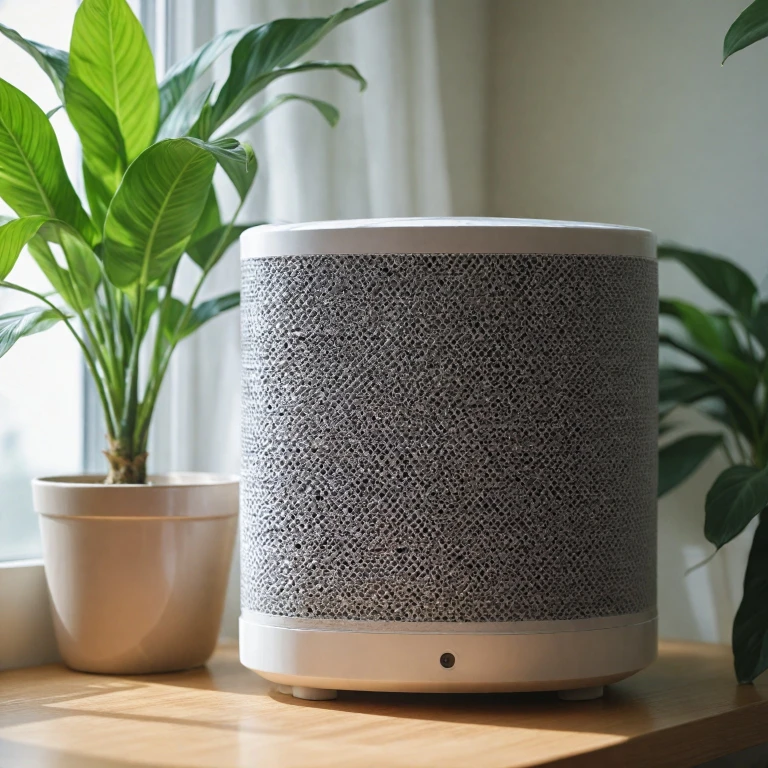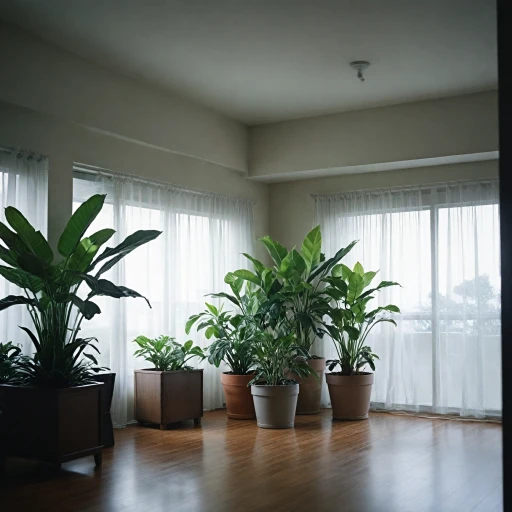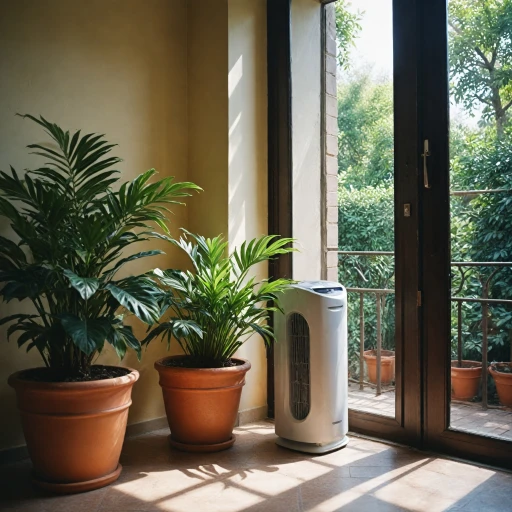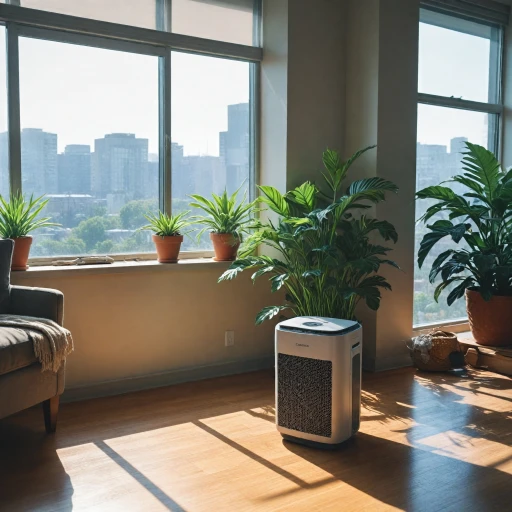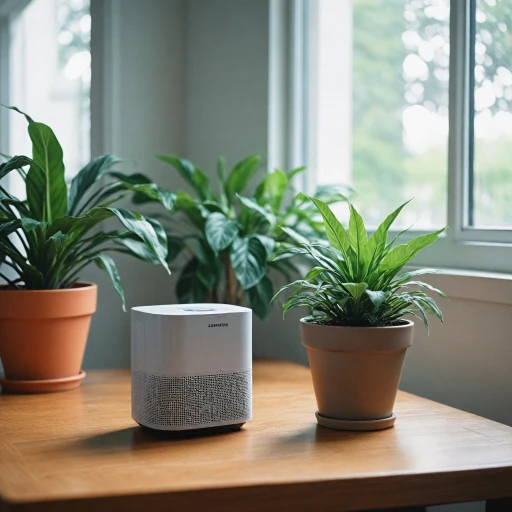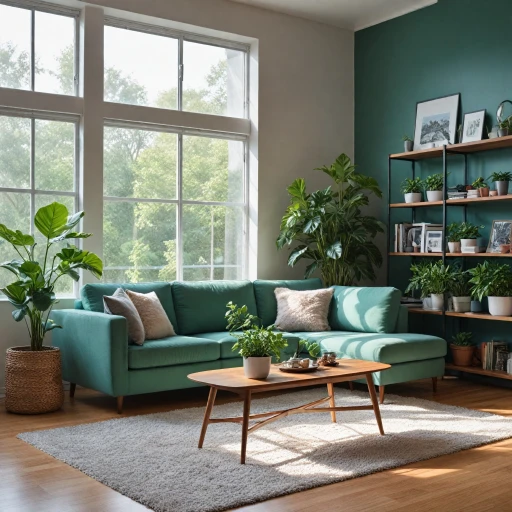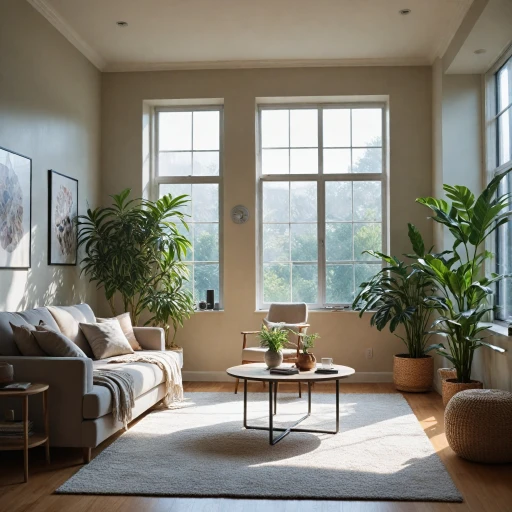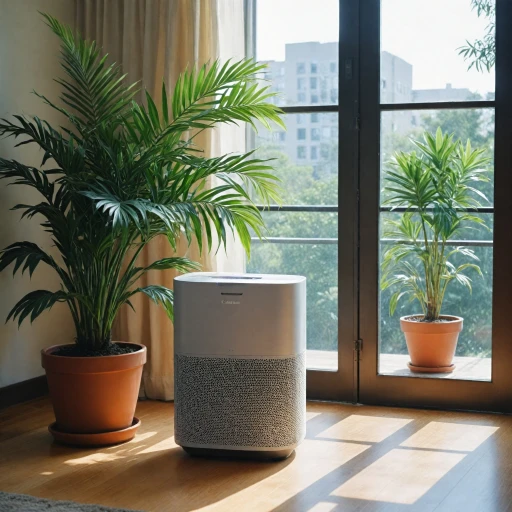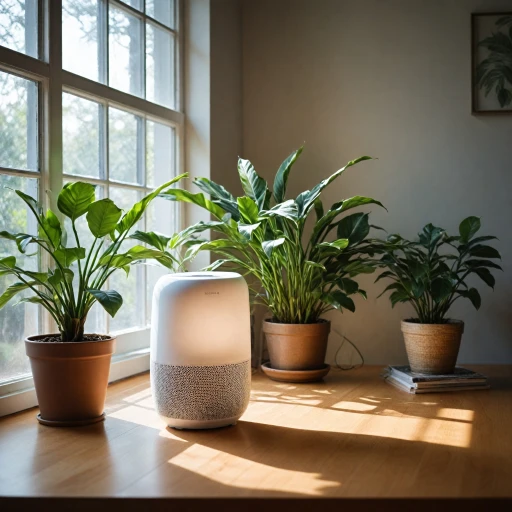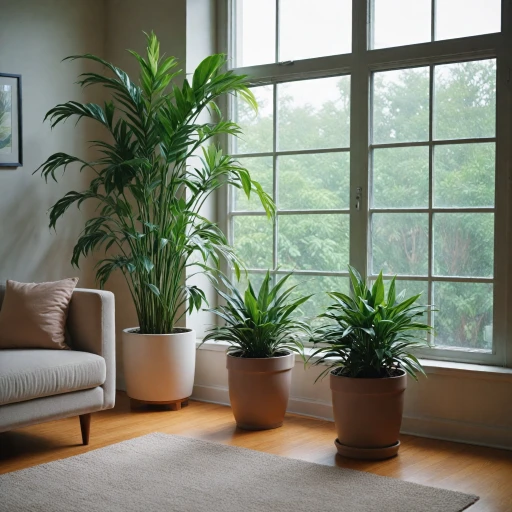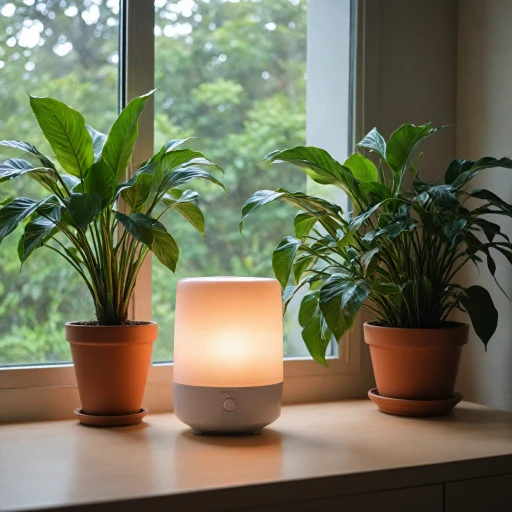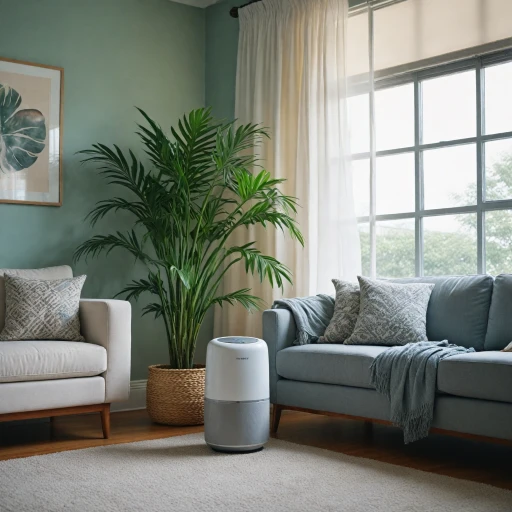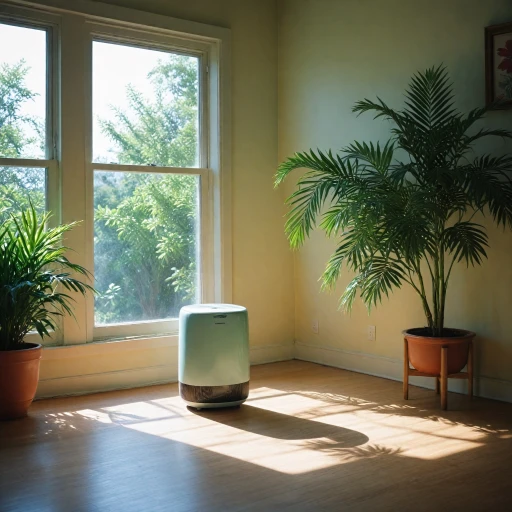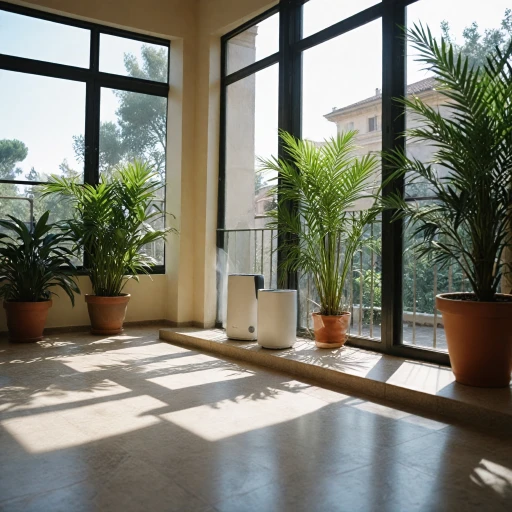
What is an H14 HEPA Filter?
Introduction to Medical-Grade Filtration
When it comes to improving air quality, particularly in indoor spaces, the efficiency of air purifiers hinges largely on the type of filter they employ. The H14 HEPA filter, known for its medical-grade filtration, is a leading choice due to its ability to capture airborne particles as tiny as 0.3 microns with a remarkable efficiency. This high-performance filter stands out because it is designed to capture 99.995% of particles, ensuring a cleaner, healthier indoor environment.
Efficiency in Capturing Particles
True HEPA, particularly the H14 filter, is distinguished by its ability to target airborne particles that often go unnoticed, such as dust, pollen, mold spores, and even some viruses. It's an ideal choice for those seeking refined air filtration solutions that can effectively improve indoor air quality. This efficiency makes them an excellent choice for environments where air quality is paramount, such as hospitals and laboratories.
Achieving High Air Quality
Using an H14 HEPA filter in your air purifier helps ensure a high flow of clean air, significantly reducing the concentration of harmful air particles. This capability is essential for creating a robust defense against pollutants that can lead to health issues, such as respiratory ailments or stroke. The impact of cleaner air on overall well-being cannot be understated, making an investment in a reliable HEPA filter a worthwhile decision for those focused on maintaining optimal health conditions in their personal or professional environments.
How H14 HEPA Filters Improve Air Quality
Enhancing Indoor Air Quality through Advanced Filtration
The integration of H14 HEPA filters into air purifiers represents a significant advancement in improving indoor air quality. Known for their high efficiency, these filters are designed to capture even the smallest particles — including those as tiny as 0.3 microns. This makes them a superior choice for effectively removing common airborne particles like dust, pollen, and pet dander.
The H14 HEPA filter employs a sophisticated air flow mechanism, ensuring that almost all pollutants are trapped. This level of hepa filtration is particularly beneficial in medical-grade applications, ensuring a healthy environment by significantly reducing allergens and potential viruses.
- Particle Capture Efficiency: H14 HEPA filters boast a high particle capture efficiency of up to 99.995%, making them crucial in environments requiring stringent air quality controls. This ensures that the air you breathe is free from harmful substances and fits the medical and high-quality standards expected of such systems.
- Flow Handling: Unlike regular air filters, H14 HEPA filters manage air flow effectively without compromising on filter efficiency. This is particularly important for devices like a flow hood where maintaining a consistent and steady flow of clean air is crucial.
- Filtration of Small Particles: By capturing a wide range of particle sizes, from larger dust and pet dander to smaller pollutants, H14 HEPA filters significantly boost the indoor air quality of any space they are part of.
Implementing H14 filters in your air purifier can be a vital step towards a cleaner and healthier indoor environment. Whether you are seeking to mitigate allergens, reduce airborne particles, or simply enhance the overall air quality of your indoor spaces, these filters offer unmatched performance.
For more on understanding the complexities and the value that H14 HEPA filters add to your living environment, check out our detailed insight into the benefits of the NuWave Air Purifier.
Applications of H14 HEPA Filters
Wide Range of Uses for Enhanced Air Purification
The versatility of H14 HEPA filters makes them highly effective across various settings where maintaining high air quality is crucial. Importantly, these applications are not limited only to residential spaces but extend to commercial and medical environments as well.- Medical and Healthcare Environments: In medical settings, such as hospitals and clinics, maintaining a sterile environment is critical. Medical-grade air purifiers equipped with H14 HEPA filters are essential for trapping airborne particles including viruses and bacteria. These filters are particularly effective at capturing particles at the micron level, significantly improving the indoor air quality in these areas.
- Commercial Spaces: Businesses prioritizing a clean and safe space for customers and employees can greatly benefit from H14 HEPA filters. They provide a high air filtration efficiency, ensuring that airborne particles are effectively captured, thereby reducing the spread of common illnesses and enhancing overall air quality.
- Industrial Uses: In settings where production processes may release particles into the air, installing air purifiers with these filters ensures a cleaner environment; this is crucial to meet specific air quality standards and maintain a safe workplace.
Choosing the Right Air Purifier with an H14 HEPA Filter
Deciding on the Best Air Purifier for Your Space
Finding the perfect air purifier with an H14 HEPA filter involves a few key considerations to ensure high indoor air quality. The right choice can make a significant difference in capturing airborne particles and improving your environment.- Air Filtration Needs: Consider the level of filtration efficiency required for your space. An H14 HEPA filter is designed to capture particles as small as 0.1 microns with medical-grade efficiency, making it ideal for spaces needing high air quality standards, such as healthcare facilities or homes with individuals sensitive to air pollutants.
- Room Size and Air Flow: Ensure your air purifier can handle the room size effectively. Look at the Clean Air Delivery Rate (CADR) to understand the air flow capacity. A higher CADR is indicative of an air purifier capable of cleaning larger indoor areas more efficiently, capturing maximum airborne particles.
- Filter Replacement and Lifespan: Consider the long-term maintenance of your air purifier. H14 HEPA filters, while efficient, must be replaced periodically to maintain air quality. Check the manufacturer's guidelines for recommended replacement intervals to maintain optimal filtration capability.
- Design Preferences: From sleek black or understated white models, consider the design that best fits your space. The stroke width on designs can vary, so choose one that aligns with your aesthetic preferences without compromising on functionality.
- Budget Considerations: H14 HEPA filters might come at a higher price, so weigh the initial cost against the potential benefits of improved indoor air quality. The initial investment is often offset by the reduced risk of health issues related to poor air quality.
Maintenance and Longevity of H14 HEPA Filters
Maximizing Efficiency: Taking Care of Your H14 HEPA Filters
Regular maintenance of your H14 HEPA filter is crucial in ensuring optimal air quality and maximizing its lifespan. As with any high-efficiency air filtration system, upkeep involves a few key steps to maintain its air flow and particle capturing capabilities.
Understanding Air Flow and Quality
Effective filtration with H14 HEPA filters relies heavily on maintaining unobstructed air flow. This is important because the main job of these filters is to capture particles as small as 0.3 microns from your indoor environment. Periodic cleaning of pre-filters or replacing them when necessary helps maintain efficiency, ensuring they trap larger airborne particles before they reach the HEPA filter. This not only improves filter efficiency but also prolongs the filter's life.
Replacement Guidelines for Longevity
The longevity of HEPA filters, particularly medical-grade H14 models, depends on the specific conditions of your environment and the filter's operational workload. It's generally recommended to replace these filters every 12 to 18 months, but this can vary. Regular inspections for visible dust accumulation or reduced air flow can signal the need for replacement sooner.
Maintaining Stroke Width and CLS Efficiency
Beyond physical maintenance, it's important to ensure that your air purification system’s controller maintains the correct settings, including maintaining appropriate stroke width for consistent air flow. Staying informed about your air purifier’s operation and inspecting control systems (CLS) can help uphold the air filter’s overall efficiency.
Proper care and timely maintenance of your H14 HEPA filter can significantly affect its functionality and the quality of your indoor air, ultimately providing peace of mind as it captures a range of particles, from dust and pollen to more challenging airborne viruses.
Cost Considerations and Value of H14 HEPA Filters
Assessing the Balance Between Cost and Performance
When considering the cost of H14 HEPA filters, it's important to evaluate their value in terms of health benefits and efficiency. These filters, known for their exceptional ability to capture particles down to 0.3 microns, including dust, pollen, and airborne viruses, offer a high level of air quality improvement. However, this advanced filtration comes at a price.
The initial expense of air purifiers equipped with H14 HEPA filters may be higher than those using lower-grade filters. The superior materials and intricate design needed to achieve medical-grade filtration contribute to this cost. Yet, the long-term value is significant, especially considering the improvement in indoor air quality and the potential reduction in health issues related to poor air flow and air filtration.
When evaluating the cost, consider the filter’s lifespan and maintenance needs. Although regular replacement is necessary to maintain optimal air filtration performance, H14 HEPA filters generally offer a substantial lifespan, which can offset their price over time. Proper maintenance, as discussed in other sections of this article, extends their longevity, improving the overall cost-efficiency.
For individuals with medical conditions or high sensitivity to particles in the air, investing in an air purifier with a true HEPA filter can be particularly beneficial. The efficiency of capturing airborne particles and contributing to a cleaner, healthier environment might outweigh the initial expenditure.
Ultimately, the decision to purchase an air purifier with H14 HEPA filters should take into account both the financial investment and the enhanced level of protection it offers against invisible indoor air threats.

